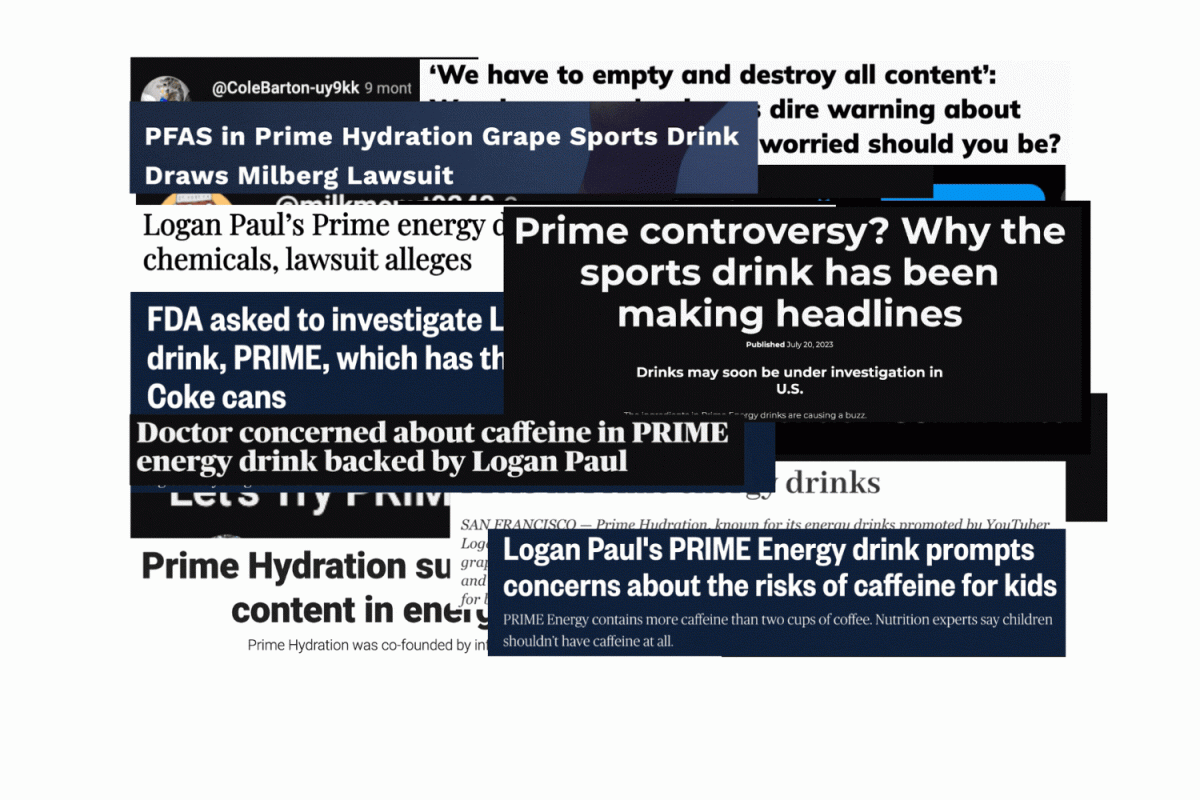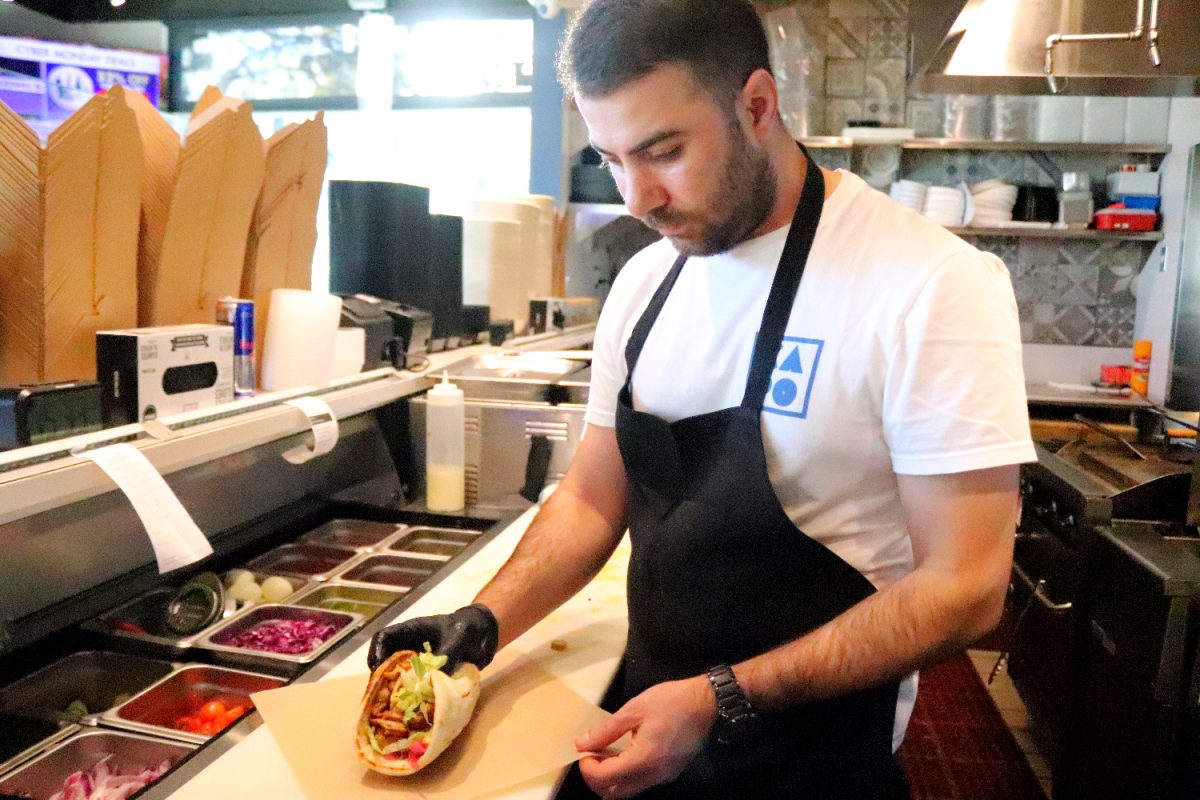Every minute, over 140,000 chickens are slaughtered worldwide. Not per year, not per day, but per minute.
According to Our World in Data, over 221.8 million animals, including cows, chickens, pigs, and ducks, are killed every day for human consumption.
As concern for the environment and its inhabitants increases, many people opt for sustainable eating: where people replace high carbon footprint food, such as meat, fish, and dairy products, with eco-friendly alternatives, a majority of which are plant-based.
According to a survey done by GlobeScan, 17% of respondents reported eating plant-based foods in 2019. This percentage has risen recently; in 2023, 23% of respondents reported eating plant-based foods.
“Sustainable eating is a diet that is good for the environment, not wasteful, and is affordable and healthy for you,” said Alyssa Ruma, a junior at Carlmont who practices a vegetarian diet.
Religion as a motivator
The popularity of plant-based diets can be attributed to various reasons; among these are personal and religious beliefs that often guide important lifestyle choices.
Various religions, including Hinduism, Buddhism, Sikhism, and Jainism, promote or mandate vegetarianism. This influences many people’s food and dietary choices.
“Animals are protected in my religion, so I don’t eat meat,” said Amani Shroff, a Carlmont junior who practices Hinduism.
Among various religious groups in India, a large majority consider themselves vegetarian. According to the Pew Research Center, 92% of Jains consider themselves vegetarian, along with 59% of Sikhs and 44% of Hindus. Additionally, a majority of followers of these religions and others, including Christianity, Buddhism, and Islam, say they follow at least some restrictions on their consumption of meat.
Ethical concerns
Others are opting for a vegetarian diet due to their concern over the exploitation of animals and disregard for their rights.
“I don’t want to support the meat industry because it feels exploitative, and I know how bad it is for the environment,” Ruma said.
Much of this concern stems from the moral issue of the factory farm system. Factory farming is a method of farming designed to maximize output while minimizing costs. This is done by confining poultry, pigs, and cattle indoors under strictly controlled conditions. According to the ASPCA, across the United States, more than 10 billion farm animals are slaughtered annually. According to the Sentience Institute, 99% of these farm animals live on factory farms.
“Factory farms confine animals in these terrible conditions. It’s a moral crisis that people don’t talk about much. Farm animals are supposed to be out on pasture. They’re supposed to be raising and rooting around in the forest. Calves are meant to stay with their moms after they’re born, chickens are not meant to have their feet or their wings clipped, and the animals are not meant to be filled with antibiotics just to keep them alive,” said Andrew Pezzullo, the Southern California Organizer for Food & Water Watch.
Biodiversity loss is another pressing issue that leads many to consider a plant-based diet. According to the World Health Organization, switching to a plant-based diet can help prevent biodiversity loss. Opting for a vegetarian diet will significantly reduce land use for agriculture and the amount of land required for grazing and growing animal feed.
Environmentalism
Concern for the environment is another significant factor in people’s food choices, and this concern has become very prevalent in recent years. According to the Pew Research Center, 31% of Americans want to phase out the use of oil, coal, and natural gases as energy.
Factory farming and agriculture have significant impacts on the environment and climate issues. According to Our World in Data, agriculture accounts for around 25% of greenhouse gas emissions.
“To solve the climate crisis, we have no choice but to fundamentally transform our animal agriculture, and we’re going to have to somehow get rid of factory farms and do something different,” Pezzullo said.
This concern for the environment is increasingly strong among young people, as 48% of adults aged 18 to 29 want to phase out the use of oil, coal, and natural gases, compared to 20% of adults aged 65 and older.
“I’m so impressed by what kids in middle school, high school, and college are doing to fight for a future for themselves and their families and all the animals that live on the earth,” Pezzullo said.
Health factors also play a significant role in lifestyle decisions, leading some people to choose a plant-based diet for its health benefits or advocate against existing agricultural systems due to their impacts on nearby communities.
Health impacts
Many people oppose factory farming and agriculture due to the adverse health impacts local communities would face.
“Factory farms increase antibiotic resistance and the likelihood of Zoonotic diseases, put a lot of animals together and put them close to human populations, and you’re much more likely to see the jump in disease. So it’s a huge risk to our communities and food supply,” Pezzullo said.
There are various health benefits of opting for a plant-based diet. According to the World Health Organization, opting for a plant-based diet lowers the risk of premature mortality and offers protection against non-communicable diseases, including cardiovascular diseases and cancers.
“There is also great research around the microbiome and how much more diverse our microbiome is when we’re on a diverse plant-based diet. It leads to better immunity, reduced chronic disease, better heart health, reduced brain issues, such as Alzheimer’s and dementia, and improved mental health,” said Michelle DeWolf, a Nationally Board Certified Health Coach.
A plant-based diet isn’t always healthy, as many staple plant-based alternatives, including imitation meat, cheese, or yogurt, are heavily processed.
“What I see is when people move to a plant-based diet, they end up eating a lot more foods that are less nutritious,” DeWolf said.
There are also some significant health concerns associated with a plant-based diet. According to the World Health Organization, vegan diets are typically associated with low intakes of vitamins B2, B12, D, iodine, zinc, calcium, and selenium.
Concern surrounding a lack of protein intake is also prevalent, as many people’s typical protein sources include dairy, meat, and other animal products.
However, due to the emergence of many alternative protein sources and other protein sources becoming more prevalent, others believe that protein deficiency isn’t an issue with plant-based diets.
“Everybody talks about protein, believing that vegetarians don’t get enough. Arnold Schwarzenegger is a vegetarian, and he’s always been into fitness, and there’s a huge amount of protein in plant-based foods,” DeWolf said.
Making the switch
Recently, opting for a plant-based diet has become more accessible due to the availability of resources, information, and food alternatives. A vegetarian diet has also become less stigmatized, making the shift more manageable for many.
“I think the vegetarian lifestyle is much easier because it’s more than just a fad. Back in the day, when people started talking about it, people thought it was weird, and now it’s just food. You can find vegetarian options on most menus. You can find it anywhere. It’s just a regular way of eating, so there’s less stigma around it,” DeWolf said.
Vegan diets are also commonly seen as more expensive due to the high prices of imitation meat alternatives. According to a Mintel study, 20% of adults who do not consume meat alternatives do so because of the high price points.
However, research has suggested that vegan and vegetarian diets may be a cheaper alternative. According to the University of Oxford, eating a vegan diet in high-income countries reduced food costs by up to one-third.
These factors have led sustainable diets to gain popularity and encouraged many people to make the switch; however, they may need help figuring out where to start.
“You’ve got to find the replacement before you just sweep it off your plate, or you’ll just be hungry and cranky,” DeWolf said.
DeWolf also recommends that those considering switching to a plant-based diet find cookbooks and simple recipes to make the transition easier. She also recommends that people research the safety of the foods they consume through reliable sources such as the Environmental Working Group, which publishes information on the safety of certain foods, such as the Clean Fifteen and the Dirty Dozen.
Undoubtedly, many people are eager to incorporate sustainability into their lifestyles, but it is also important to prioritize health when making decisions about food and diets.
“Going vegetarian is a big switch, so make sure it doesn’t interfere with your health because that is the top priority,” Ruma said.























